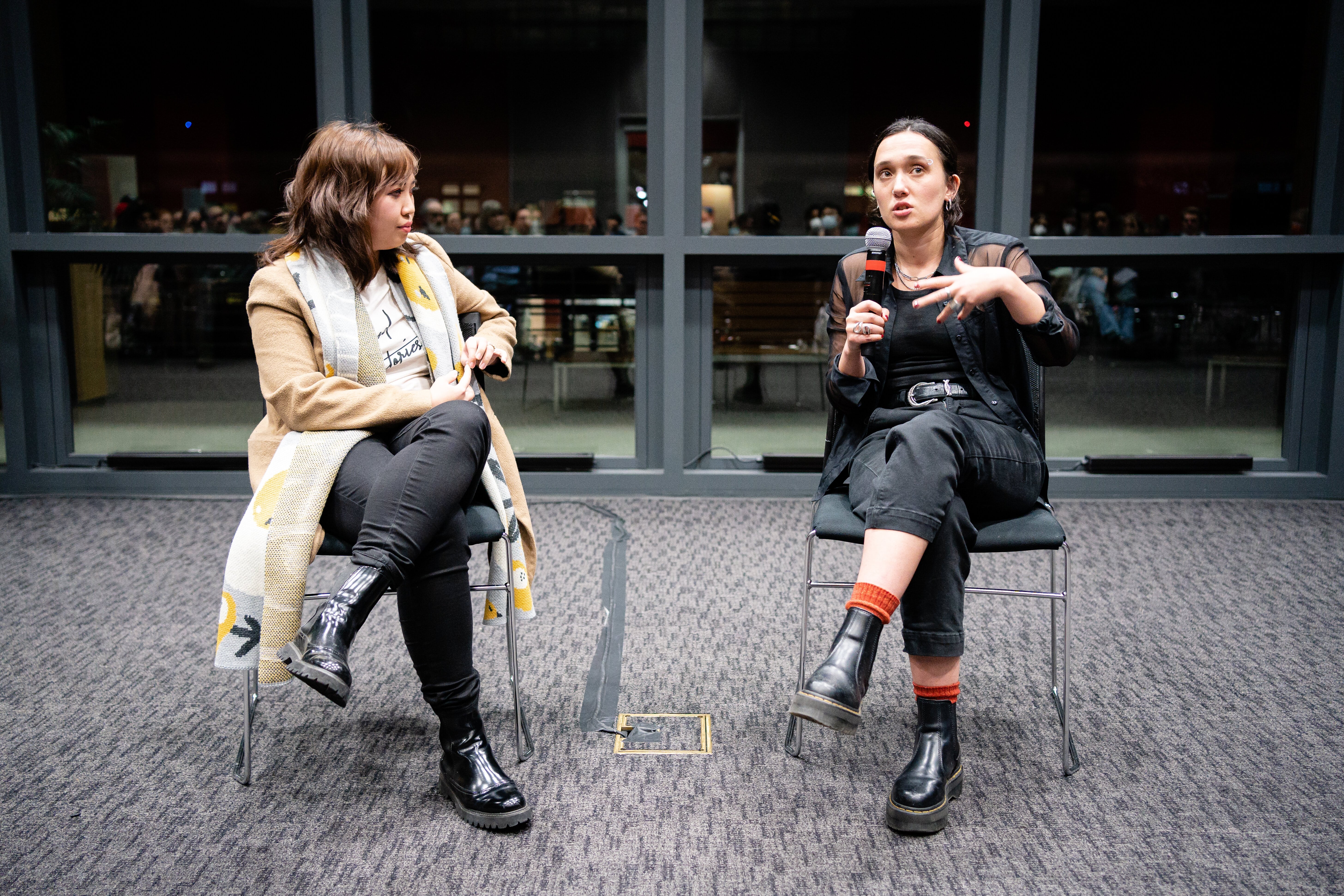“Literature drinks humanity’s tears,” began Nick Jenkins, interim director of Stanford’s creative writing program, on Wednesday night at the fourth Stegner Fellow Reading of the year. The pieces read — ranging from reflective poetry to apocalyptic fiction — led the audience to reflect on the boundaries between imagination and reality, public and private spheres in light of recent global tragedies.
The reading began with soothing poems by New York-based writer Madeleine Cravens. Her poems merged past and present landscapes through descriptive language, creating a combined space in which both exist. They gave listeners insight into the dichotomy of the private and public nature of life in relation to queerness, complex friendships and the understandings of time and space.
Cravens further questioned the boundary between private and public through an essay discussing epistolary poetry, or poems in the form of letters.
“Sometimes I wonder if this is what separates poetry from fiction: if most poems — or maybe just the poems I love best — are just letters made public,” Cravens read. “I am struck over and over by how poems offer a container for correspondence.”
The theme of correspondence is interwoven throughout Cravens’ poems. “An Explanation” was written out of anger for her long, complicated friendship with an older poet.
“And I thought / if I have a daughter I hope she’s nothing like me / and from the valley came a smell of burning,” read Cravens, concluding her poem.
In reference to the tension between the public nature of her poem and its epistolary form, Cravens explained that a poem’s intent may not be truly private.
“I wrote the poem before my career really happened,” she recalled. “I had no intent of sending it to a publication; it really was meant for one person.” However, Cravens wondered if she had subconsciously wanted the poem to be published for a larger audience because “it was phrased in a way that could be legible to others.”
The second reader, Singapore- and New York-based writer Jemimah Wei, immediately took the audience to an imagined land. The prose writer gave a lively reading of an excerpt from a piece that documents the unfolding of a zombie apocalypse in the modern world.
Wei imbued her writing with wry humor that was woven with deep, thought-provoking existential questions. Her work contained hopefulness that humanity can better itself.
“For the last couple of years, we have consistently felt like we are living during the end of the world. I don’t think that’s normal,” Wei said. She told the audience that people seem to be living in “a constant state of dread,” and she wrote the piece to shed light on this reality.
Both Cravens and Wei reflected on the healing experience of writing by hand. Wei explained that she was currently revising her novel this way.
“It’s a more embodied experience,” Cravens agreed.
Amidst real-world tragedies, there is no better way to reflect on our lives than through pen and paper, reading and writing literature.
Editor’s Note: This article is a review and includes subjective thoughts, opinions and critiques.
